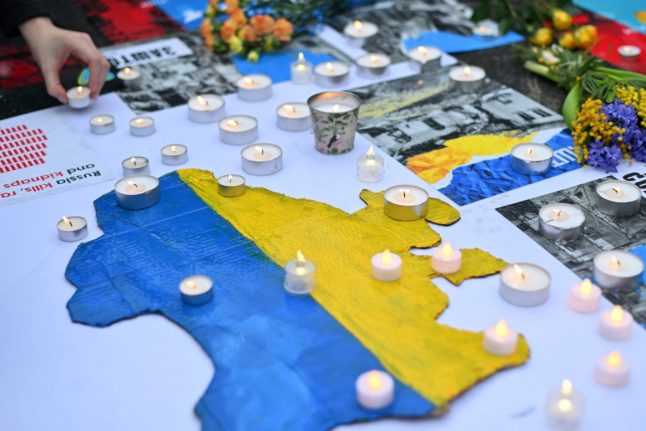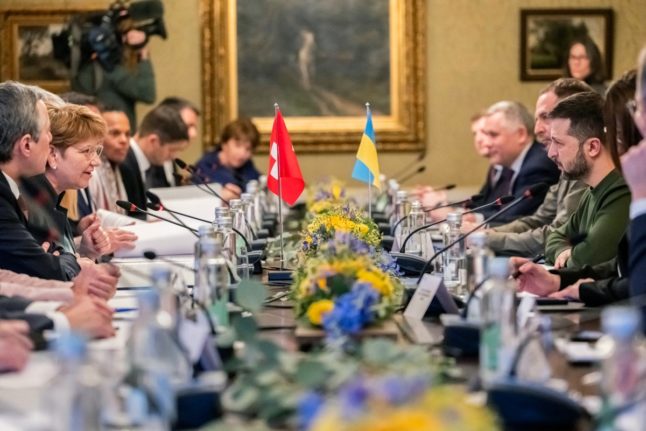The conference will take place at the luxury Burgenstock resort near the central city of Luzern on June 15th -16th and would be hosted by Swiss President Viola Amherd.
“This is a first step in a process towards a lasting peace,” she told reporters in Bern.
Russia quickly slammed the planned conference and Amherd acknowledged that “we will not sign a peace plan at this conference”, but said she hoped “there will be a second conference”.
“We hope to start the process.”
Russia, which invaded Ukraine in February 2022 and is putting Ukrainian forces under new pressure, condemned the event as being part of a scheme by US President Joe Biden’s Democratic Party ahead of this year’s presidential election.
“American Democrats, who need photos and videos of events that supposedly indicate their project ‘Ukraine’ is still afloat, are behind this,” the state-run TASS news agency quoted foreign ministry spokeswoman Maria Zakharova as saying.
Switzerland hopes to get Russia into later talks.
The government said in January, during a visit by Ukrainian President Volodymyr Zelensky, that it wanted to organise a peace conference this year.
‘Support for peace’
The government said in a statement Wednesday that it “took note of the results of the exploratory phase of the high-level conference on peace in Ukraine”.
It determined that “there is currently sufficient international support for a high-level conference to launch the peace process.”
In January, Zelensky spoke of a “summit” without any Russian participation.
But traditionally neutral Switzerland wants to find a way to bring the Kremlin into the talks, and has been battling to attract China and other emerging powers.
Swiss Foreign Minister Ignazio Cassis also tried to woo Moscow, meeting with his Russian counterpart Sergei Lavrov in New York in January.
Russia, angered by the Swiss decision to follow the neighbouring European Union in imposing sanctions, has charged the country can no longer be considered neutral.
On Wednesday, Cassis acknowledged Russia’s absence from the table but stressed that the aim was to include Moscow in future talks.
“A peace process cannot happen without Russia, even though it will not be there during the first meeting,” he said.
Since deciding that it wanted to host a conference, the Swiss government said it had been “in direct contact with numerous states to explore options for initiating a peace process”.
Switzerland had held talks with G7 member states, the EU and representatives of the Global South, including China, India, South Africa and Brazil, it said.
Bern did not disclose who would be attending, but Swiss media reports said US President Joe Biden would be on the list.
The conference will be aimed at establishing “a forum for a high-level dialogue on ways to achieve a comprehensive, just and lasting peace for Ukraine in accordance with international law and the UN Charter,” the government said.
“It aims to create a common understanding of a framework favourable to this objective and a concrete roadmap for Russia’s participation in the peace process.”



 Please whitelist us to continue reading.
Please whitelist us to continue reading.
Member comments